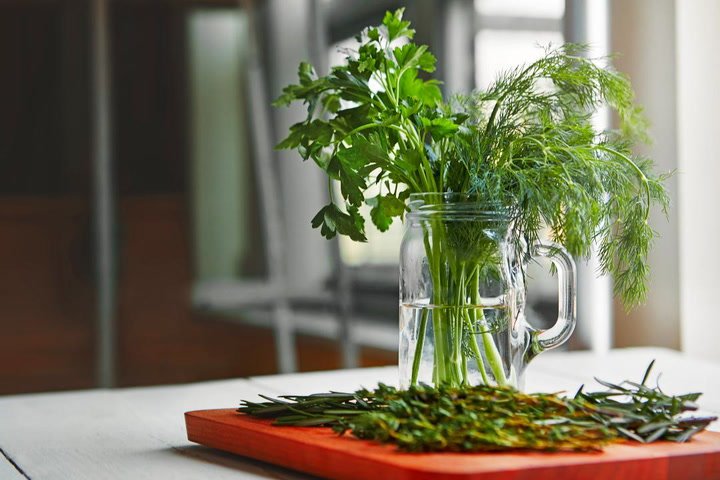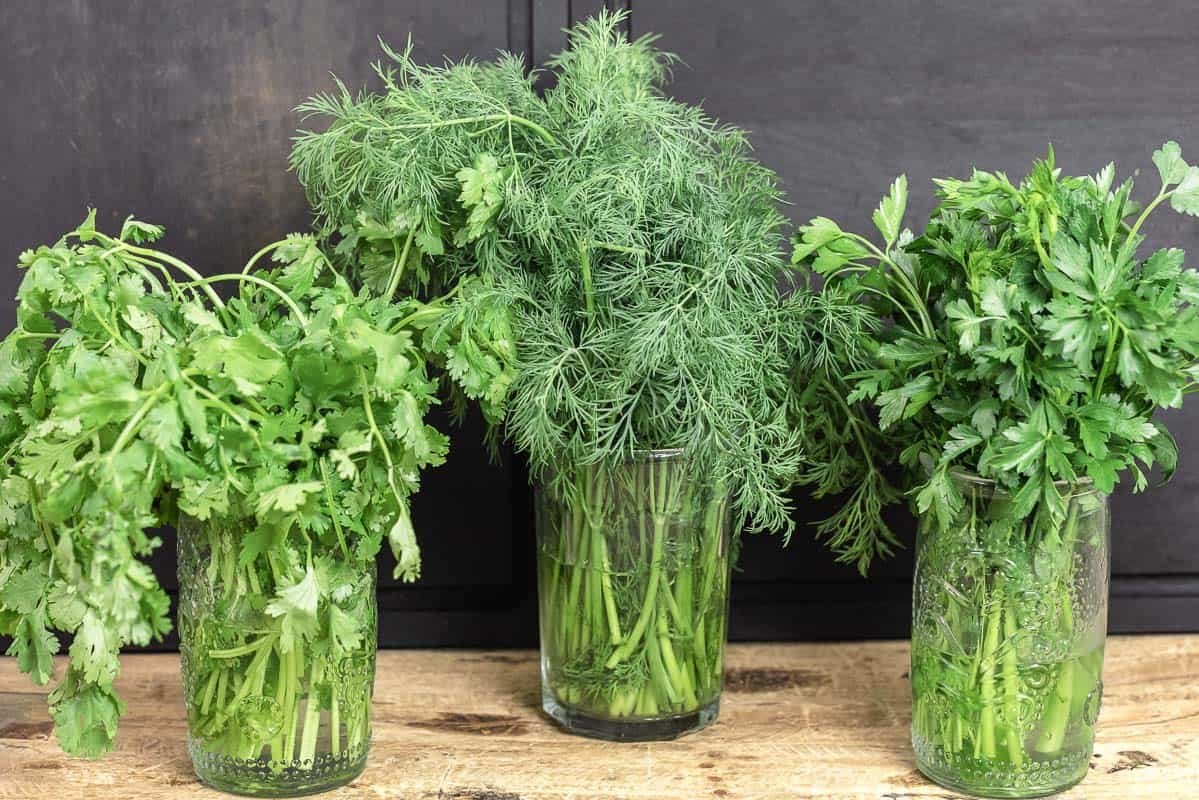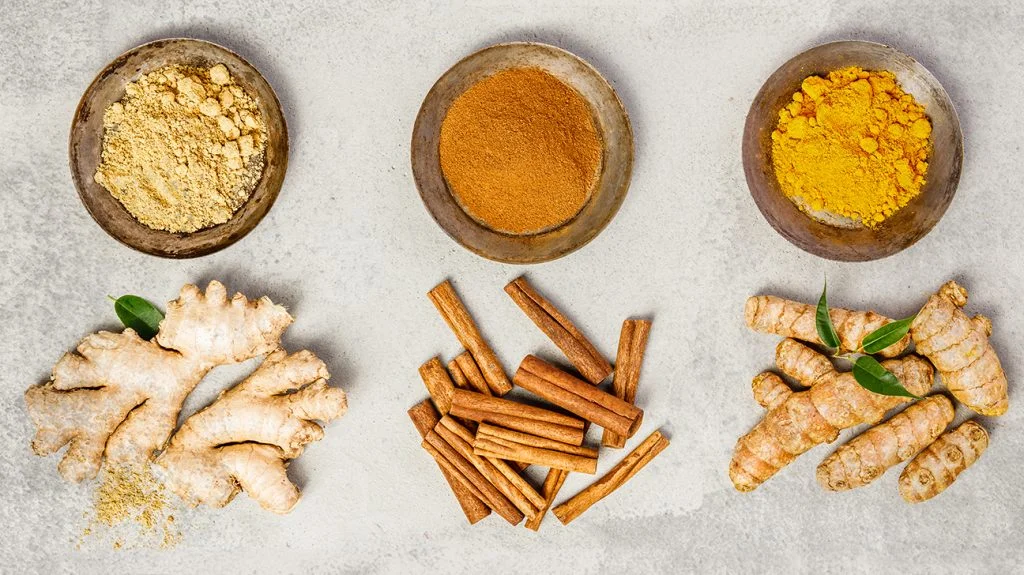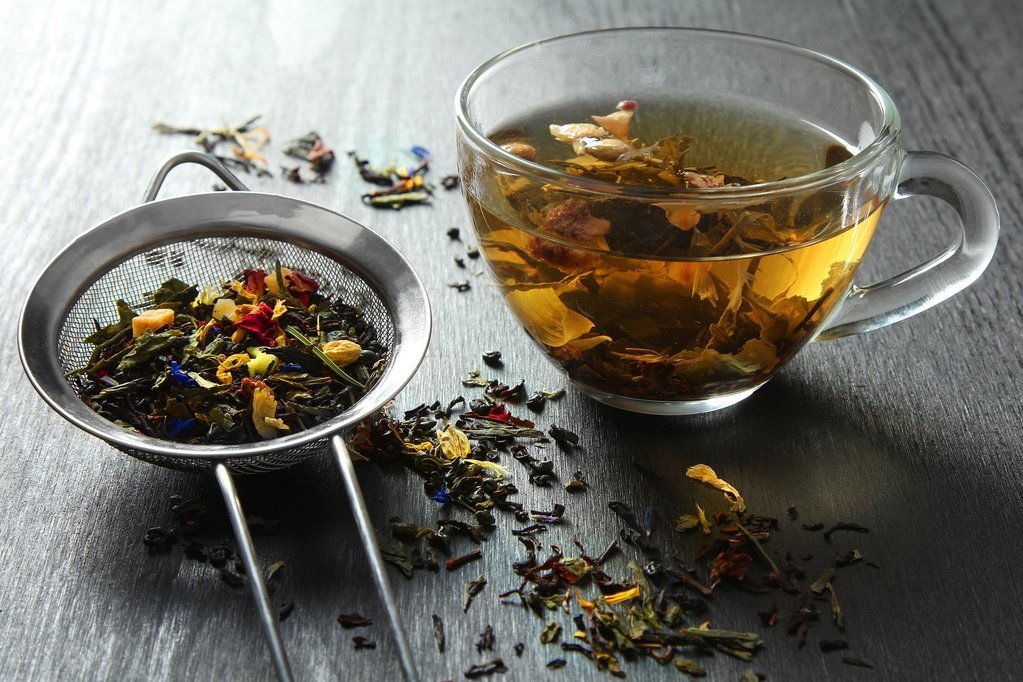If you love using fresh herbs in your cooking, you may want to know how to preserve herbs for long-term use. Fresh herbs can be difficult to store, and they tend to spoil quickly. Fortunately, there are many ways to keep your herbs fresh and flavorful for months or even years. In this article, we’ll discuss several easy methods for preserving herbs so you can enjoy them long after the harvest season.
1. Drying Herbs: A Simple and Effective Method
Drying herbs is one of the most popular and effective ways to preserve them for long-term use. When you dry herbs, you remove the moisture that causes them to spoil, leaving the flavor intact. There are two common ways to dry herbs: air drying and using a dehydrator.
Air drying is easy and requires no special equipment. Simply gather your herbs in small bunches, tie them with string, and hang them upside down in a warm, dry place. Make sure the area is well-ventilated and away from direct sunlight to prevent the herbs from losing their flavor. After about one to two weeks, the herbs should be dry and ready for use.
Alternatively, you can use a dehydrator. This method is faster and more controlled. Simply follow the instructions for your specific dehydrator, and you’ll have dried herbs in a few hours. Once dried, store the herbs in airtight containers, away from light and heat.

2. Freezing Herbs: A Great Way to Keep Freshness
Another effective way to learn how to preserve herbs for long-term use is by freezing them. Freezing helps maintain the flavor and aroma of herbs, making it a good option for those who prefer fresh herbs in their cooking. There are two ways to freeze herbs: whole or in ice cube trays.
To freeze whole herbs, wash and dry them thoroughly, then place them in a freezer-safe bag or container. Some herbs, like basil and parsley, freeze well without losing too much flavor. If you want to preserve the texture, chop the herbs before freezing them.
Ice cube trays offer a fun and convenient way to freeze herbs. Simply chop the herbs, place them in the compartments of an ice cube tray, and add a little water or olive oil to cover them. After freezing, transfer the cubes into a freezer bag. This method makes it easy to grab a single cube of herbs whenever you need them.
3. Making Herb Oil or Vinegar: A Flavorful Option
If you want to preserve your herbs for long-term use in a flavorful way, try making herb oil or vinegar. Both options are simple to prepare and add a delicious taste to your dishes.
For herb oil, chop your herbs and place them in a clean jar. Pour olive oil over the herbs and seal the jar tightly. Let the oil infuse for a few weeks, shaking the jar occasionally. Once infused, strain out the herbs, and store the oil in a cool, dark place. Herb-infused oils can be used for cooking, salad dressings, or as a finishing touch for many dishes.
Similarly, herb vinegar is made by adding herbs to vinegar and letting it sit for about two weeks. This method creates a tangy, flavored vinegar that works well in dressings or marinades.
4. Making Herb Pastes: A Convenient Option
If you want an easy way to store herbs that can be used right away, herb pastes are a great option. To make a herb paste, chop your herbs finely and blend them with olive oil or butter. Once mixed, transfer the paste into an ice cube tray or silicone mold and freeze it. This way, you can use a small portion of the paste when needed.
Herb pastes are perfect for adding flavor to dishes without having to chop fresh herbs every time you cook. You can make basil paste for pesto, or a rosemary and thyme paste to use in roasts.
5. Storing Herb Seeds for Future Use
If you grow your own herbs, storing herb seeds is a smart way to preserve them for the future. Harvest seeds from your favorite herbs and store them in paper envelopes or small glass jars. Make sure to label the containers with the herb name and date of collection. Store the seeds in a cool, dry place, and you’ll have fresh herbs to plant next season.
This method ensures that you have a continuous supply of your favorite herbs without needing to buy new seeds every year. Additionally, some herbs can be self-seeding, meaning you can easily grow them from the seeds they produce.
6. Using Herb Pots for Indoor Growing
If you want fresh herbs year-round, another great way to preserve herbs is by growing them indoors. Herb pots can be placed on windowsills or countertops, allowing you to harvest fresh herbs even in the winter months. Some herbs, like basil, mint, and chives, grow well indoors with the right care.
This method doesn’t exactly preserve herbs for long-term use, but it allows you to keep them fresh and accessible throughout the year, without worrying about storage.
7. Preserving Herb Bouquets: A Beautiful Option
For a more decorative approach, you can preserve your herbs as herb bouquets. This involves gathering herbs like lavender, rosemary, and thyme, and arranging them into a beautiful bouquet. After tying them with string, you can hang them in your kitchen or another dry area. These bouquets not only look pretty but can be used for culinary purposes or crafting.
Conclusion
In summary, there are many ways to learn how to preserve herbs for long-term use. Whether you choose drying, freezing, making herb oils, or creating pastes, there’s an easy method for every need. Each of these methods ensures you can enjoy your herbs long after the growing season ends. With a little effort, you can preserve the fresh taste and aroma of your favorite herbs for months or even years, adding flavor to your dishes whenever you need it.











